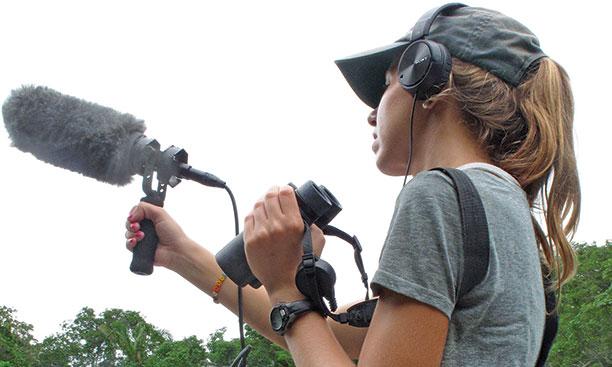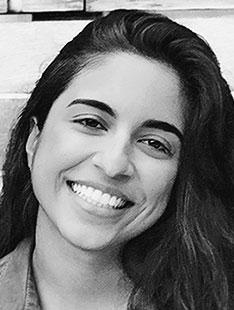
For many grad students, summer means a quiet campus, relentless humidity, and time to finally focus on their work. However, it doesn’t always mean long days in the library or lab — for Justine Atkins, a fourth-year Ph.D. student in ecology and evolutionary biology, summer meant fitting antelope with GPS collars in Mozambique.
“My work abroad is very different from my work in Princeton,” she said. “You have to be very adaptable, willing to work hard under hot sun and biting tsetse flies for hours at a time.” Still, she said, “I love being out in the field. There really is nothing like it.”
Atkins is one of many in her discipline who spend summers at remote field sites, but biologists aren’t the only students to travel for summer work. Amna Qayyum, a fifth-year Ph.D. student in history, spent her summer in Pakistan conducting dissertation research and serving as a fellow of Pakistan@100, a program she said “aims at training advanced doctoral students who focus on Pakistan and connecting academics to the policymaking process.” The work, which included writing policy memos and contributing to a podcast, won’t be part of her dissertation, but Qayyum believes the experience strengthened her as an academic.
“I am learning how to communicate my research to different audiences, including policymakers, academics in other disciplines, and the general public,” she said.
Thomas Hodson, a fourth-year Ph.D. student in mechanical and aerospace engineering, interned at The Engine, a Boston-based startup incubator, where he explored areas of research and development for possible investment opportunities. Part of his time was spent on a project that tied into his work at Princeton: recycling and reusing lithium ion batteries.
Approaching the topic from a business standpoint instead of a technical one gave Hodson a chance “to take a step back and look at the big picture,” he said. But he noted that not all grad students have the flexibility to take a summer away from academics. While M.P.A. candidates at the Woodrow Wilson School are required to complete internships, Ph.D. students often need the summer to make progress on research.
“The summer is the only time I have to collect data,” said Amanda Savagian, a third-year Ph.D. student in ecology and evolutionary biology who spent her summer studying animal communication in Panama. “I am focused primarily on my Ph.D. work when I’m in the field; there’s not much time to develop other skills or work on other projects.”
David Logan *17, an M.P.A. graduate and second-year Ph.D. student in public affairs, knows firsthand how expectations vary by program. Since transitioning into the Ph.D., he’s devoted his summers to more “traditional academic work,” though it hasn’t kept him on campus — his research this summer took him across three continents. He believes students’ “independent professional goals” should inform their summer plans, a view shared by Cole Crittenden *05, deputy dean of the Graduate School.
“Some students may wish to explore professional opportunities that allow them to apply their graduate-level training and Princeton experience beyond the academy, and we are supportive of such exploration,” Crittenden said. “Helping students toward timely completion of the Ph.D. remains part of our essential mission, but we also focus more and more on preparing students for a range of meaningful careers.”
Regardless of the nature of their summer work, students came away refreshed. For Savagian, field work was a chance to spend time outdoors and interact with other researchers. Logan, too, felt the benefits of a more social summer.
“There’s a cliché that the kind of work we do is individual and isolating,” he said. “But my summer reiterated the extent to which rigorous research is a communal effort.”
As for Hodson, a summer in the business world was just what he needed to get ready for a productive year back at Princeton. “It was nice to get away from research,” he said. “But I noticed toward the end of the project, I missed research. I was really excited to come back.”

